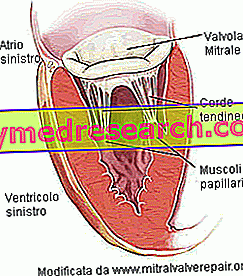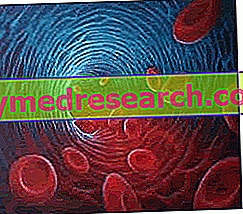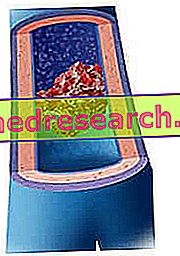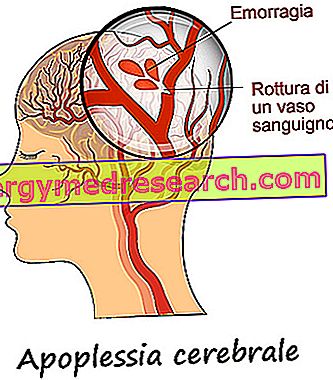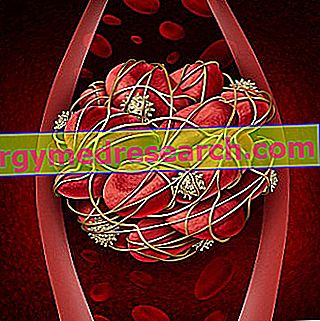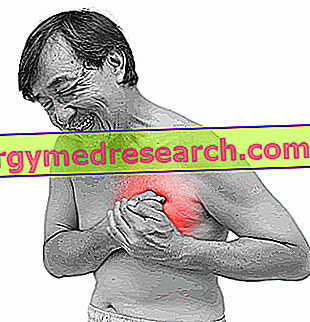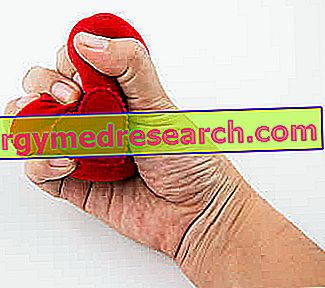Generality Mitral insufficiency (or mitral regurgitation ) consists of the incomplete closure of the left atrioventricular orifice, in which the mitral valve (or mitral valve) resides; this happens during the phase of ventricular systole, that is, in the moment of contraction of the ventricles of the heart; under similar conditions, finding the orifice not completely closed due to valvular incontinence, the blood returns partially backwards, passing from the left ventricle to the left atrium: it is the so-called mitral regurgitation
Category cardiovascular diseases
Premise All the information reported in the article is provided by the production company of the intravenous laser ; not having found further investigations or experiments of an impartial type that demonstrate or test what has been described, the following article must be understood as a simple review of the knowledge acquired by consulting the information material of the specific company
THROMBOSIS RISK FACTORS Age over 40 years Pregnancy, puerperium Malignant tumor, previous or current Blood disorders that tend to favor coagulation processes Hereditary or acquired diseases of the coagulation system Heart failure Diabetes mellitus Previous myocardial infarction Previous episode of venous thrombosis Family history of deep vein thrombosis Major surgery or recent injuries, especially of the lower limbs or abdomen Estrogen hormone therapy, including oral contraception Lower limb injury Subjects subjected to major surgery recently Prolonged immobilization (long periods of lodging, l
Generality Deep vein thrombosis is a serious pathology and much more frequent than one can imagine (estimated incidence around 1.6 - 1.8 per thousand). Also known as "economy class syndrome" or "traveler's thrombosis", it is typical of aging but does not spare young women and children; the risks are greater even for those who remain motionless or simply sit for a long time, perhaps behind a desk, in the theater, on the train, in the car or on the plane
Generality Apoplexy is a pathological condition characterized by a sudden haemorrhage , which occurs at a specific tissue or organ causing serious alterations and causing their destruction. In truth, the term apoplexy is generally used as a synonym for cerebral apoplexy , better known as stroke, or stroke
Generality Virchow's triad describes what are considered the main factors responsible for thrombus formation. These are alterations affecting the endothelium of blood vessels, blood flow and blood coagulation and which can favor the appearance of thrombus, therefore, of thrombosis. The Virchow triad owes its name to the German physician Rudolph Virchow who, in 1856, clarified in one of his publications the etiology of pulmonary embolism
What is the Angina Pectoris The term Angina Pectoris derives from the Latin terms Angina = pain and Pectoris = chest. It is, in effect, a syndrome characterized by pain in the retrosternal region , sometimes irradiated on the ulnar side of the left arm and at the shoulders. Causes The sense of constriction in the chest is caused by the temporary decrease in blood flow to the cells of the heart (transient myocardial ischemia), which is insufficient to meet the needs of the myocardium
By Dr. Stefano Casali Definition Spectrum of diseases with different etiology, in which the unifying pathophysiological factor is represented by an imbalance between the metabolic demand and the supply of oxygen to the myocardium. This imbalance causes an alteration in the electrical activity and the contractile capacity of the affected areas
Edited by Massimo Armeni Increasingly, in newspapers and on television, we read and talk about growing overweight among adults and children, and relative obesity. To complete this picture, the consequent increase in risk factors for athero-coronary diseases is increasing exponentially. However, we do not talk about how to correctly diagnose and above all what to do if the results are positive for a probable unfavorable cardiovascular event (CVD)
Generality In common parlance, the term infarct refers to necrosis - hence to death - of heart muscle tissue; for this reason it is more correct to speak of myocardial infarction . The reasons why a more or less extensive region of the heart undergoes necrosis are different and all referable to the insufficient supply of oxygen to the cells that compose it
coronary Importance and functions The heart, like the other organs of the human body, needs the right doses of oxygen and nutrients to function properly and live. The supply of these substances is ensured by the presence of a dense network of vessels, which together form the coronary system. The coronary circulation, as well as that of the whole organism, is composed of veins and arteries that surround the surface of the heart like a crown (hence the term coronary)

